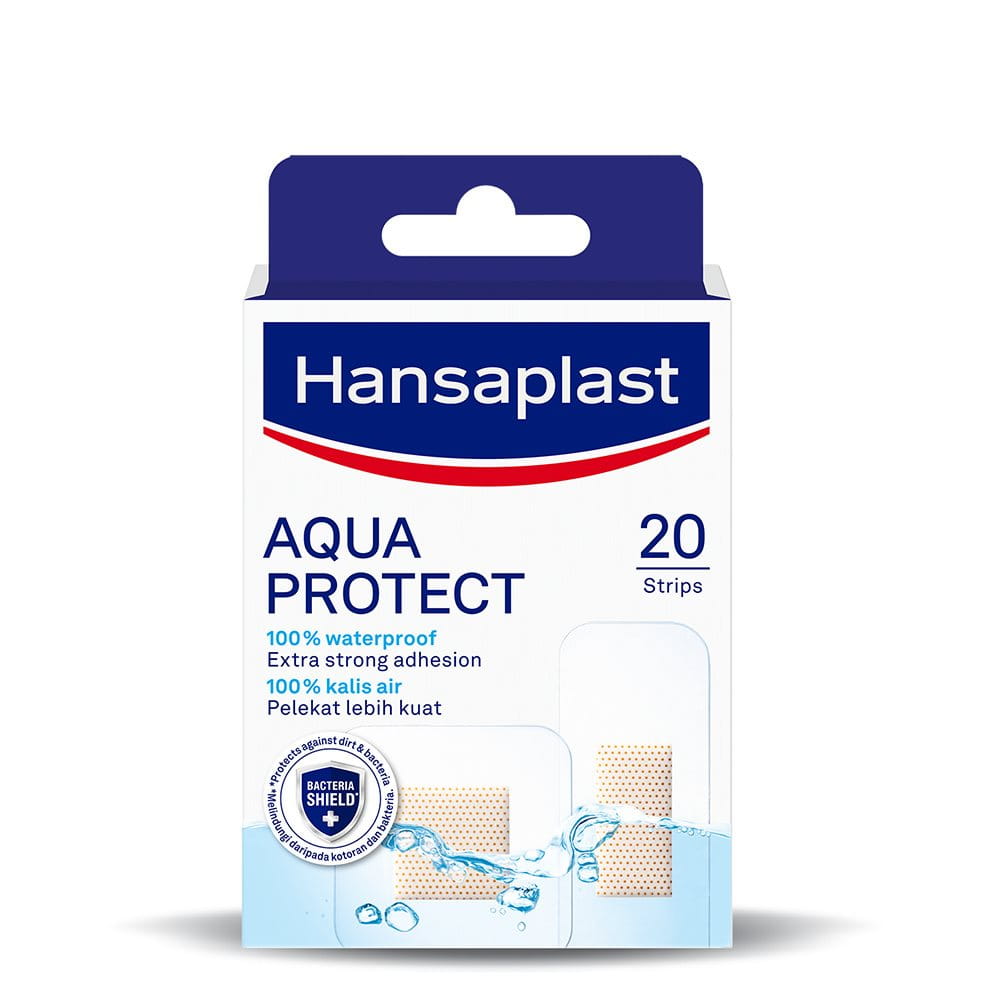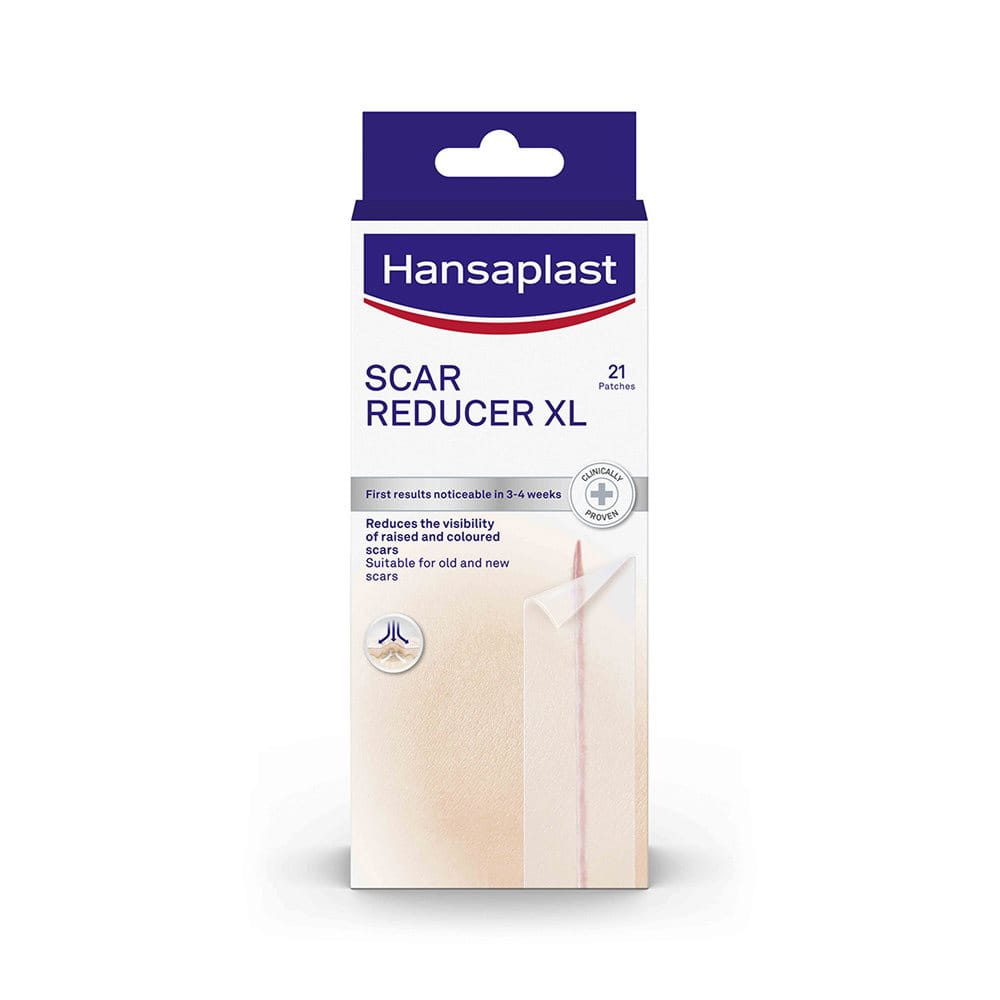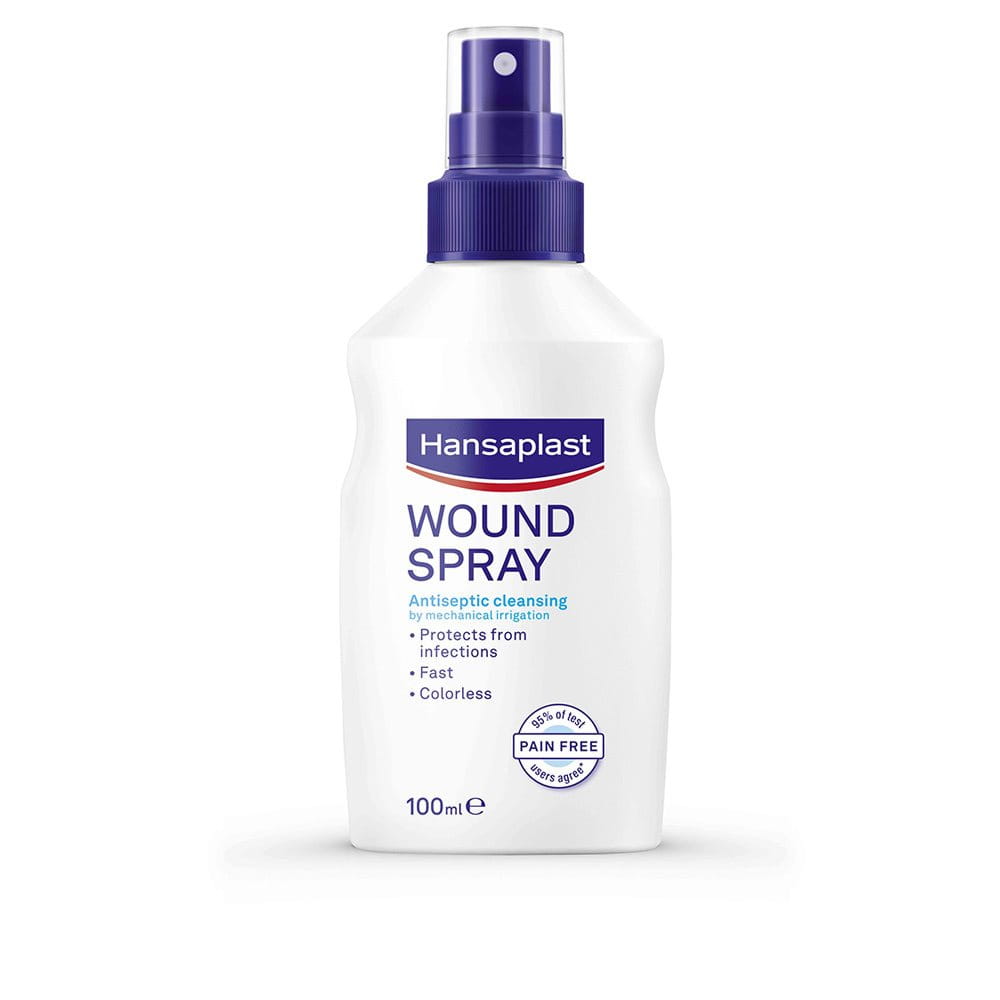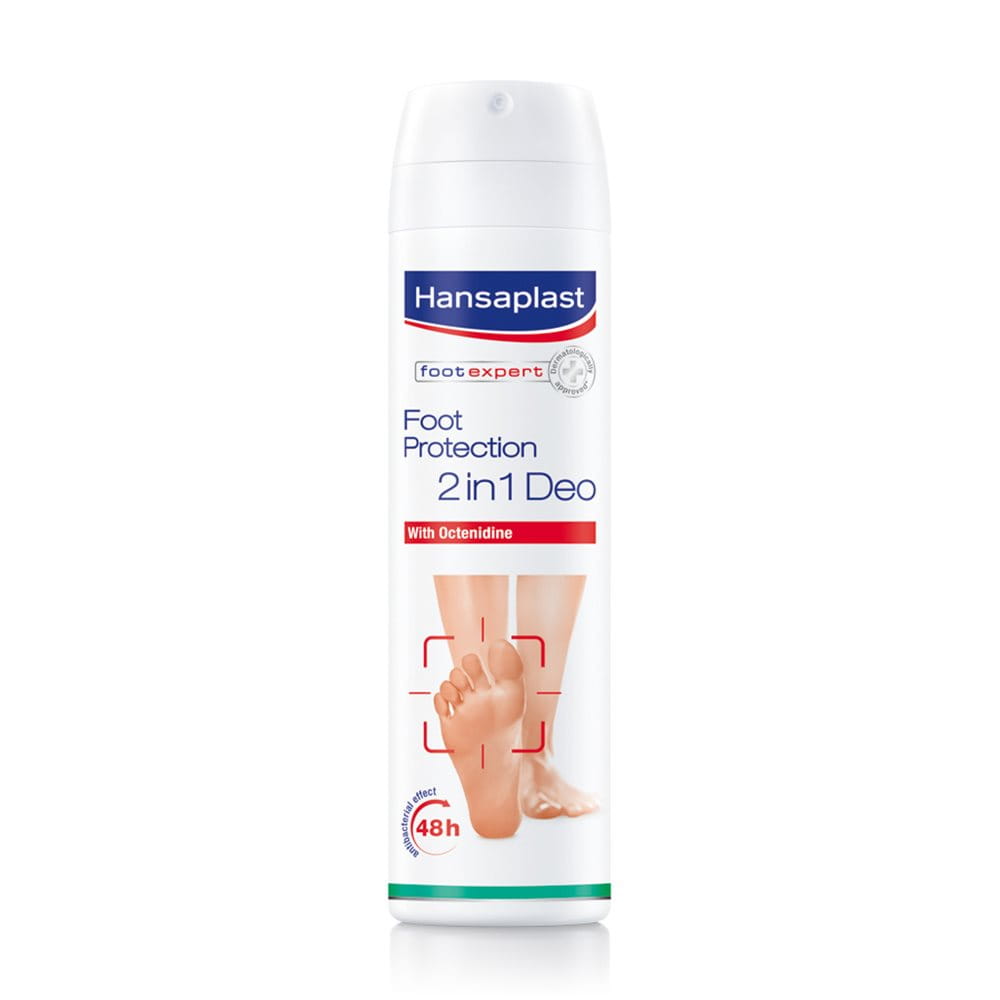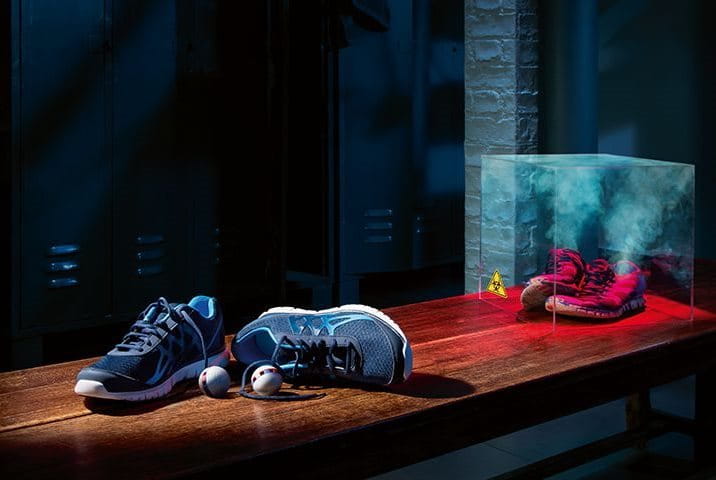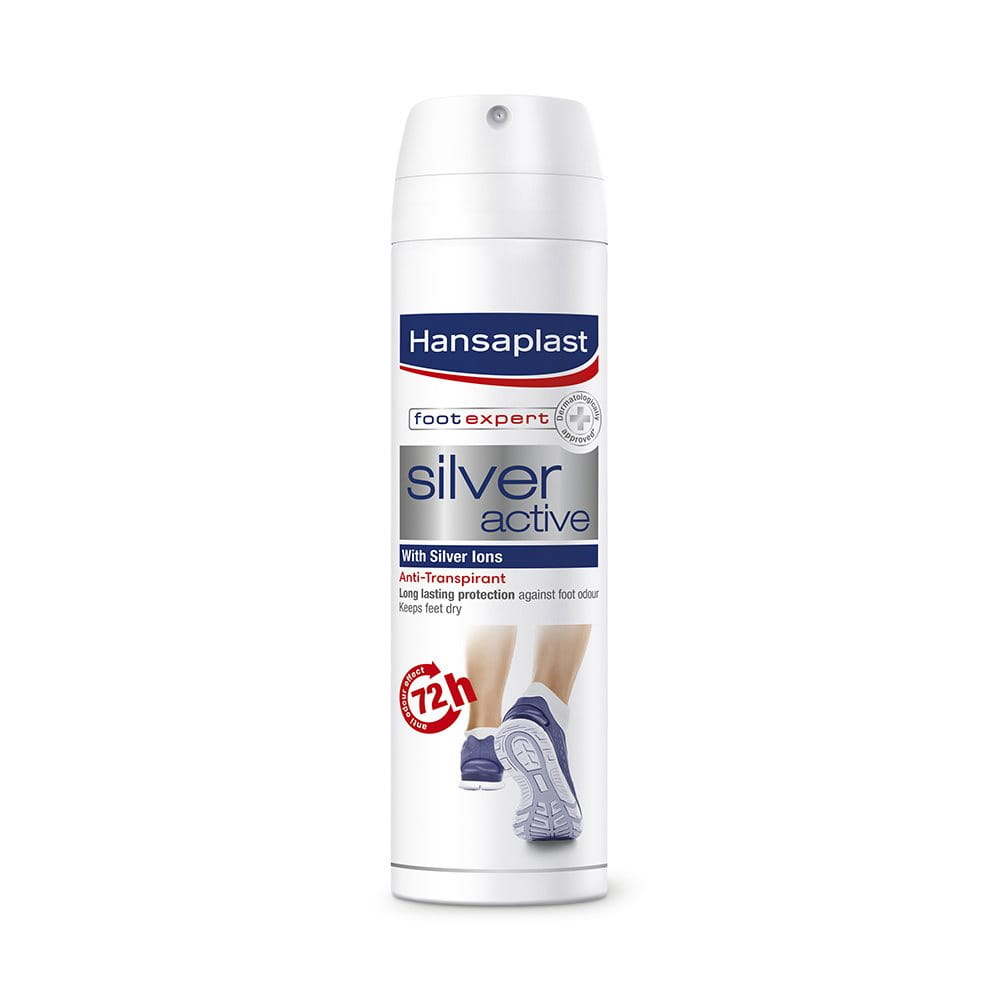1. How does foot odor develop?
Feet can sweat, and consequently develop an unpleasant odor. Nothing to be ashamed of!
As every foot sweats and is mostly trapped inside socks and shoes, this is only natural. It is the interaction of these two factors along with bacteria that causes the occurrence of unpleasant smell. Feet have more sweat glands than any other part of the body (about 500 per square centimeter). Sweat as such does not smell, but being enclosed in socks and shoes, microorganisms find ideal circumstances to thrive in the warm and humid climate. The products of their metabolism consequently cause the unpleasant odor.
2. What is the difference between a normal deodorant and a foot deodorant?
Sweat glands are the primary source of foot secretion and allow for a high level of hydration particularly as the feet are often confined in socks and closed shoes/trainers. Foot perspiration with its distinct cheesy, acid note smells different from axilla perspiration due to a different composition of the skin's micro flora, which is responsible for foot malodor. The different perfumes of the products have therefore also been optimized to cover possible foot malodor or axilla malodor respectively.
3. How does Hansaplast Foot Protection 2 in 1 Deo help?
Quite often sweaty feet develop a very unpleasant smell. This is caused by a specific bacteria which decomposes the foot perspiration into a bad smelling degraded products. The Hansaplast Foot Protection 2 in 1 Deo which includes Octenidine and consists of an antibacterial formula protects the feet from the bacteria that leads to the unpleasant smell in the end. With this product the feet stay fresh in a hygienic manner.
The humid climate in shoes present an ideal fertile environment for the formation of Athlete’s Foot. It can cause an unpleasant itchiness and the skin becomes scaly. The specific formula with Octenidine in the 2 in 1 Deo protects the skin and prevents the formation of Athlete's Foot.
4. How do I use Hansaplast Foot Protection 2 in 1 Deo?
5. What can I do if I have extremely hot and sweaty feet?
Since closed, non-breathable shoes made of synthetic material and wearing summer shoes without socks favour sweating of the feet, you should change your shoes frequently and walk barefoot as often as possible.
When using the foot deodorant pay close attention to the space between the toes, as these are particularly vulnerable to the development of Athlete's Foot. Moreover, footbaths with lukewarm water are refreshing. Tannic acid supplements (such as oak bark) can also reduce the sweating of the feet.
